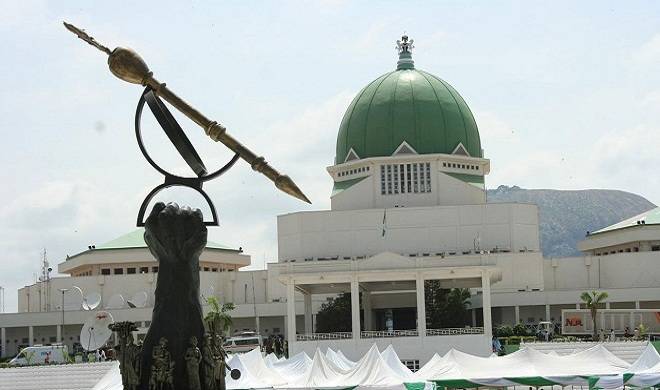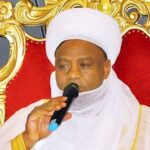In a week from now, the 2019 general election season would formally end with the conduct of the governorship and the state houses of assembly elections on March 9. And as often happens in electoral contests, there would be dislodgements from some of the government houses on the say-so of the people, the ordinary people. The power to turn his excellency into an ex-excellency by these ordinary people, none of whom is fit to untie the shoe lace of his excellency, speaks eloquently of the mythical power of democracy.
And then the messier post-election litigation season will kick in. The lawyers need no one to tell them it is time to begin dusting their law books to prepare themselves for the forensic battles ahead. The chairmen of the election tribunals were sworn in long before the general elections. We hardly need to hold our breath
Alhaji Atiku Abubakar, presidential candidate of PDP, has served notice he would head for the courts and let their lordships judicially sift the grains of electoral truth from the chaffs of the INEC facts that denied him the right to occupy Aso Rock from May 29. Some people are already condemning this, citing it as one more instance that Nigerian politicians are bad, not graceful, losers. But does anybody doubt that if President Buhari had lost, he too would not have rejected the results and headed for the courts as he did three times before he won the presidential election in 2015? Electoral defeats are cruel.
I always knew that President Goodluck Jonathan would be a difficult act to follow. He became, and he cannot simply stop crowing over that, the first African politician to concede an electoral defeat even before all the votes were in. There might have been circumstances that must have influenced his decision but it would be unfair not to accept that in doing what he did, he saved the system more stress and showed that sweet as political power is, there are men who would refuse to be its slaves rather than its masters, and can walk away from it when the larger interests of the nation advises that course of action.
Still, I wondered who, between Buhari and Abubakar, would do Jonathan, if only to enlarge the line the man drew in the sand. In media interviews before the election on February 23, Abubakar said if he lost in a free and fair election he would concede. On the other hand, Buhari said it would be impossible for him to lose the election. And yes, he would congratulate himself as the winner. It has come to pass. So, let me join him in congratulating himself.
As we await the litigation season to kick in, we might do well to interrogate the nature of our electoral system and the obvious flaws in it. I have argued here and elsewhere that INEC is a victim of the system that refuses to cleanse itself. We uncharitably expect the commission to rise above the general failings of the Nigerian system as if its personnel are not also Nigerians. Comprehensive election rigging is possible because the flawed system makes it possible. One of the problems under which our electoral system continues to groan is the unwillingness of our leaders to undertake a radical overhaul of the system. When we resort to the loose talk of ascribing post-election litigations to bad losers we tend to play down the seriousness of the problems that bedevil our electoral process and keep the rest of the world awake in all our general election seasons.
In 1979, the departing generals instituted the election tribunals as part of our electoral system for the quick dispensation of justice. The implication is that the will of the people is now subject to the confirmation or approval of the courts. That is not the way of democracy, although the right of the judiciary to intervene to save the system from its naked rape is a given. That should happen as an exception, not the rule, as is the case now. It could be argued, with some justification, that if the election tribunals did not exist, it would have been worse, much worse, for our electoral system. Still, the fact is that the tribunals are unable to quickly dispense justice. Cases arising from the 2015 general elections are still winding their way through the system. That is not the way of justice. It is a denial of justice. More importantly, the tribunals have become part of the corruption of the electoral system; further making it impossible for the aggrieved with shallow pockets to be anything but the recipients of justice. The rich tie up the cases in the courts. It is not right.
We all know this but the will to do the right things and free our electoral system from its many problems is simply absent because its absence serves the vested political interests of those who run the system. It makes it impossible for us to hold our politicians to the standard set by Jonathan. We have thus missed the opportunity once more to show the world that our democracy is maturing and we with it. No elections are perfect because they are all conducted by men and women – the most imperfect of God’s creatures. But if, despite this, other countries can run an electoral system that raises fewer questions than answers, why is the giant of African behaving like Lilliputian?
Abubakar’s decision to contest his defeat in the court tells the rest of the world that we are still unable to get our electoral act together. The final verdict now lies in the hands of their lordships. The president would not be sitting pretty as the case snakes its way through the labyrinth of the judicial system. Uncertainty is wired into the societal DNA. Anything can, and does, happen although we have no instance yet of a Nigerian president sent home by the say-so of their lordships. Still, the fact that the declaration of winners and losers by the electoral commission in respect of all our elections continues to be challenged by those who feel that the decisions do not reflect the expressed will of the people is a challenge that only the Nigerian state could tackle when and if it finds the will to put the electoral system right.

 Join Daily Trust WhatsApp Community For Quick Access To News and Happenings Around You.
Join Daily Trust WhatsApp Community For Quick Access To News and Happenings Around You.


